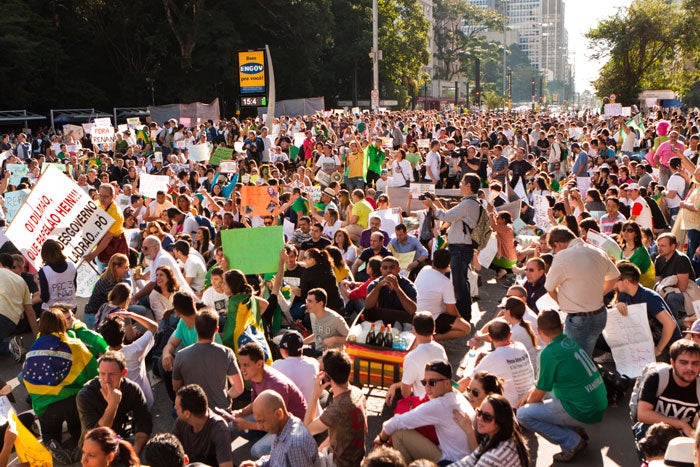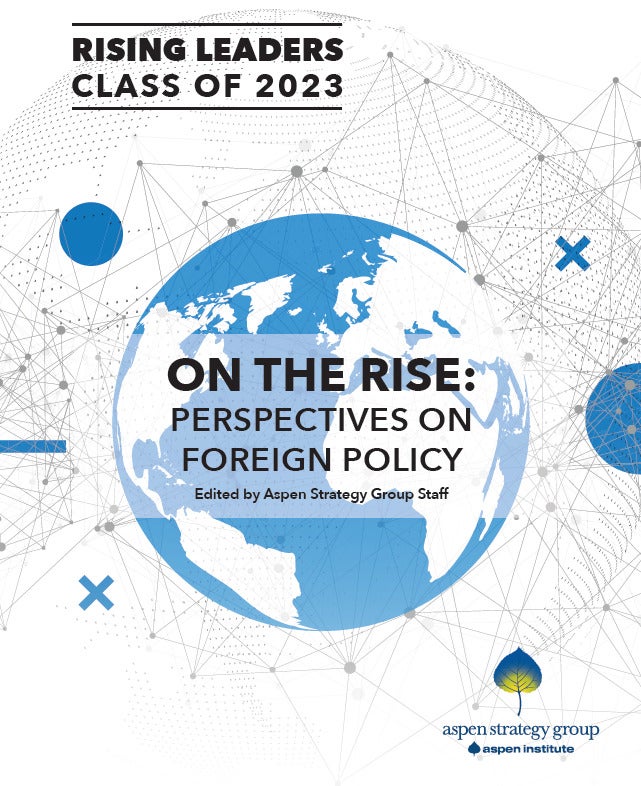From Italy and its party-lists representation and Parliamentary system to France’s semi-presidential system with run-off elections, the underlying structures of how citizens go to the polls and elect their representatives vary greatly in form and in effect. In this time of political gridlock and daunting challenges, ranging from addressing climate change and extremism to reducing the income inequality and poverty gaps, we shouldn’t ignore the importance of the structures that influence our political systems.
These next two weeks offer hotly contested elections in two of this hemisphere’s largest democracies: the United States and Brazil. Observing each election will be interesting enough. A comparison of the two, however, offers fascinating insights.
Let’s start with Brazil. As the comedian John Oliver recently noted, the South American giant’s political rules are unique. In under 5 minutes, Oliver touched upon two Brazilian idiosyncrasies: mandatory voting for all legally eligible citizens (regardless of whether they live abroad, as one of the author’s of this article can confirm first hand) and free airtime for political candidates. A third element, which Oliver did not touch upon but we believe offers important insights, is the absolute majority with run-off system for presidential elections.
Voting in Brazil is more than a legal right; it is a legal obligation. The high voting turnout that results from mandatory voting can be appealing on a systemic level. This Sunday, Brazilians will either be at the polls, or will have to justify to the government why they did not vote in the second round of the presidential elections. (Those failing to vote also risk incurring a fee, losing their voting registration, and facing restrictions on government services such as renewing passports or attending a public university). Oliver summarizes it well, "yes, it's basically illegal not to vote in Brazil, a well-intentioned law. The problem is, when you make something obligatory, people resent it."
During election season in Brazil, if you turn on the television or radio, there is a good chance you will be faced with “electoral time,” or horário eleitoral. “The beauty is, candidates even get free airtime on Brazilian TV whether they are joke candidates or not,” notes Oliver. Many candidates in local races seem to be just that. The pros and cons of such a system can be heavily debated. It does offer some interesting points: all candidates have at least some exposure to voters, with the amount of time given to a candidate varying by their political party’s power in Congress; there is an increase in opportunity for citizens to be engaged in the political discourse; and it seeks to decouple outside money from electoral politics by eliminating the need for candidates to purchase airtime. Whether these points together make Brazilians more engaged and Brazilian democracy more effective is another question.
Brazil’s presidential election is determined by an absolute majority with run-off , which allows for an election in which more than two parties can offer serious contenders to the highest executive office. This is evidenced by the high-stakes race between Dilma Rousseff, Aecio Neves, and Marina Silva during the first round of the presidential elections earlier this year. In the second round, which takes place if no candidate receives more than 50% during the first round, the top two candidates vie for the hearts and votes of Brazilians.
By contrast, elections in the United States are mostly based on a “first past the post” system — that is to say whoever receives a simple plurality of votes is the victor. The notable exception is the way the Electoral College casts votes for the president and vice president based on state-by-state tallies and matched in number to each state’s congressional delegation.
The “first past the post” system, while simple to administer, leaves the obvious concern that candidates can be elected without mustering even a simple majority of public support. In fact, President Obama is the first president to win at least 51% of the popular vote twice in more than five decades. And the inability of candidates to garner more than half of the votes cast is not a new phenomenon — Abraham Lincoln won the presidency in 1860 with a scant 40% of the popular vote. Even though it is ultimately the Electoral College votes that matter, the perception that a president can obtain office with the majority of the country not supporting him or her often automatically puts a new administration on the defensive.
There are many other factors that, while different from Brazil, have a concrete impact on the candidates who actually run for office. As the United States prepares for an election in which all House of Representatives seats are on the ballot, many advocacy and media groups are concerned that congressional and legislative districts are drawn specifically to favor one party or another. Moreover, it is no secret that direct campaign fundraising, and dark money from political action committees (PACs) and now Super PACs play a growing role in the ad wars that dominate elections in the United States.
Finally, in the United States, voting is not mandatory. And while turnout rates have been trending upwards in recent years, only a presidential contest on the ballot has any real impact. Turnout in 2012 was 54%, but turnout in the last midterm election in 2010 was a dismal 37% — meaning just over a third of voting-age Americans are participating and having their voices heard.
And of course none of this precludes what one might call the unpredictable intangibles on the outcome of an election. By its nature, these intangibles are difficult to measure. Is there any way to know if Brazil's massive expense and unfinished projects to host the World Cup will play any role in Dilma's prospects for reelection? In the United States, we are always wary of the "October surprise.” How might fears of ISIS and the few cases of Ebola in the United States affect the mood of the electorate? Will feelings toward Obamacare really influence individual House races? All of these questions have some bearing on elections, but to what degree remains an open question. Moreover, this is where the political process in both countries should be at its best, with candidates responding to developing news and debating these issues in the public eye so voters can decide.
Examining our political structures is not enough to ensure a robust democracy. We must also look to our citizens themselves. From the streets of São Paulo in 2013 to Missouri just weeks ago, massive protests have given a material form to the discontent many feel in these two nations. With today’s 24-hours news cycle and increasingly advanced ICT technologies, the days of governments and candidates controlling the agenda and sweeping thorny issues under the rug are increasingly behind us. Election results in these two nations, impacted by the mechanics of each vote, will show how well the leaders are managing as the pace of change quickens.
Beyond these election outcomes, these and other democracies would benefit if governments learned from one another. That means acknowledging what works — and what doesn’t — and continually improving the democratic process, at the ballot boxes and beyond. Democracy is an evolving process, and it’s sometimes necessary to make adjustments so that it truly represents a government of the people, by the people and for the people.
 Protesters in Brazil, summer 2013.
Protesters in Brazil, summer 2013.
